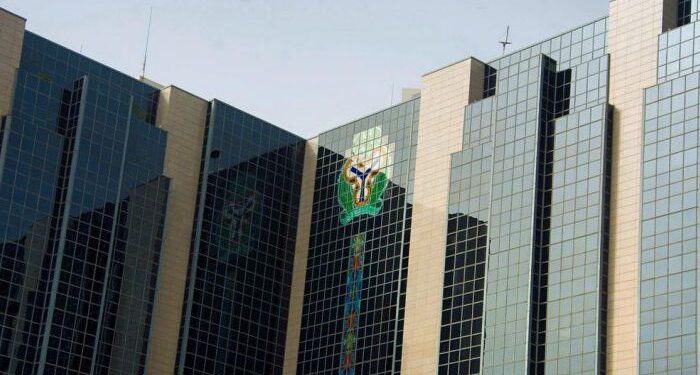The Central Bank of Nigeria (CBN) has announced a reduction in its benchmark interest rate, lowering the Monetary Policy Rate (MPR) to 27 percent. The move marks the first downward adjustment in months and signals the apex bank’s bid to ease credit conditions, stimulate investment, and consolidate gains from falling inflation.
The decision was reached at the conclusion of the Monetary Policy Committee (MPC) meeting held in Abuja, where members voted to cut the rate after carefully reviewing recent economic data. According to the CBN, the adjustment reflects the need to balance inflation control with the urgency of stimulating growth in key sectors of the economy.

Inflation, though still elevated, has been on a downward trajectory in recent months. The latest figures from the National Bureau of Statistics (NBS) indicate that headline inflation fell marginally for the third consecutive month, driven by slower increases in food and energy prices. With this trend, policymakers argued that the tightening stance adopted earlier in the year had achieved its immediate objectives of moderating price pressures, creating room for a cautious easing cycle.
CBN Governor Olayemi Cardoso, while briefing the press after the MPC meeting, explained that the reduction in the benchmark rate is expected to boost lending to the private sector, particularly in manufacturing, agriculture, and small and medium enterprises (SMEs). He noted that high interest rates had contributed to elevated borrowing costs, constraining business expansion and investment. “We are confident that this adjustment will provide relief for productive sectors of the economy while maintaining vigilance against potential inflationary risks,” he stated.
Analysts say the move reflects the CBN’s desire to align monetary policy with broader government efforts to stimulate growth and stabilize the economy. The Federal Government has embarked on reforms aimed at boosting productivity, curbing food inflation, and attracting investment. With inflation beginning to ease, the rate cut is viewed as a calculated step to support those reforms by unlocking credit channels and encouraging spending.
Financial markets responded with cautious optimism. Equities recorded modest gains as investors anticipated improved corporate earnings from reduced financing costs. On the other hand, bond yields dipped slightly as expectations of further monetary easing set in. Currency markets remained stable, with the naira showing little immediate reaction, though traders said the long-term impact would depend on how the policy shift affects capital inflows and reserves.
For the banking sector, the CBN’s decision could create both opportunities and challenges. While reduced rates are likely to stimulate higher demand for loans, banks may face narrower interest margins. However, industry experts believe that increased lending volumes could offset potential margin pressures, especially if credit quality is maintained.
Small business owners and manufacturers have welcomed the development. Many argue that access to affordable credit has been one of their greatest challenges in an economy where input costs, power shortages, and logistical constraints remain high. A lower benchmark rate, they say, could ease financing costs, improve working capital, and boost production capacity.
Nonetheless, concerns remain about the potential risks of easing too soon. Some economists warn that inflationary pressures could reemerge if monetary conditions loosen excessively, especially given Nigeria’s reliance on imports for critical goods and the volatility in global oil prices. They argue that while inflation has eased, structural issues such as weak infrastructure, insecurity in food-producing regions, and exchange rate volatility could still drive costs upward.
The CBN has, however, assured that it remains committed to a data-driven approach. Governor Cardoso emphasized that the bank would closely monitor inflationary developments, exchange rate movements, and global economic conditions to ensure that the policy stance remains appropriate. “We are not abandoning our inflation-targeting framework,” he stressed. “Instead, we are pursuing a balanced path that recognizes the dual mandate of price stability and growth support.”
Internationally, Nigeria’s move mirrors broader trends in some emerging markets where central banks have begun easing policy after prolonged tightening cycles. With global inflation moderating and major economies like the U.S. and the Eurozone signaling a gradual relaxation of rates, Nigeria’s adjustment aligns with global shifts, though domestic risks remain significant.
The MPC also reviewed liquidity management, credit allocation, and foreign exchange market reforms during its meeting. It reaffirmed its commitment to building confidence in the financial system, supporting fiscal policy, and driving structural reforms that can reduce dependency on imports while promoting local production.
Market watchers will be paying close attention to the implementation of this rate cut and its impact on credit expansion. Much will depend on whether commercial banks pass on the benefits to borrowers or remain cautious due to concerns over non-performing loans. In addition, the effectiveness of the rate reduction will hinge on complementary fiscal policies, including infrastructure investment, security improvements, and regulatory reforms to ease the cost of doing business.
For ordinary Nigerians, the immediate effect may not be felt overnight. But over time, if banks respond positively, households could see more affordable mortgage and consumer loans, while businesses may find it easier to finance expansions. This, in turn, could spur job creation, raise household incomes, and contribute to sustained economic growth.
In conclusion, the reduction of the MPR to 27 percent is a significant shift in Nigeria’s monetary policy stance. It underscores the CBN’s recognition that stabilizing inflation alone is not sufficient to address the economy’s challenges; growth stimulation is equally critical. Whether the move yields the desired outcomes will depend on effective coordination between monetary and fiscal authorities, disciplined implementation by the banking sector, and resilience in the broader economy.
Support InfoStride News' Credible Journalism: Only credible journalism can guarantee a fair, accountable and transparent society, including democracy and government. It involves a lot of efforts and money. We need your support. Click here to Donate
